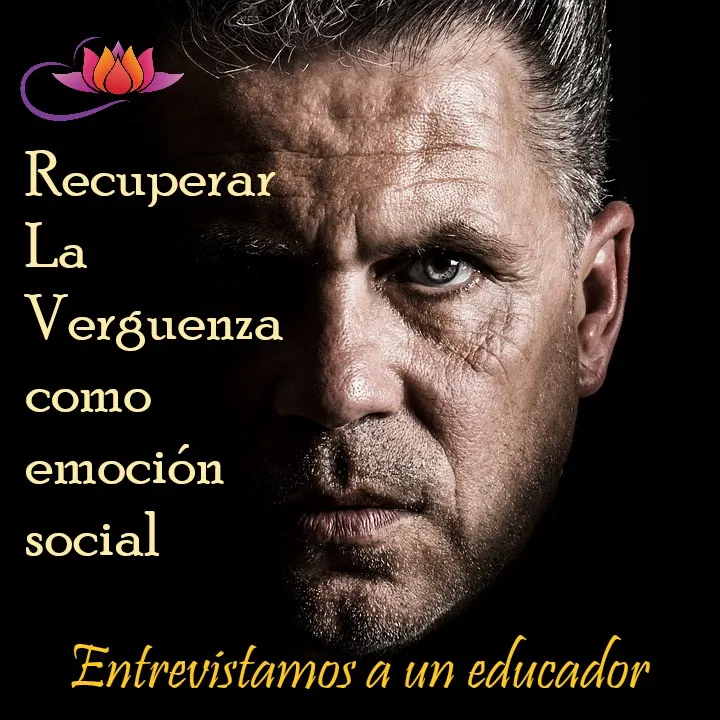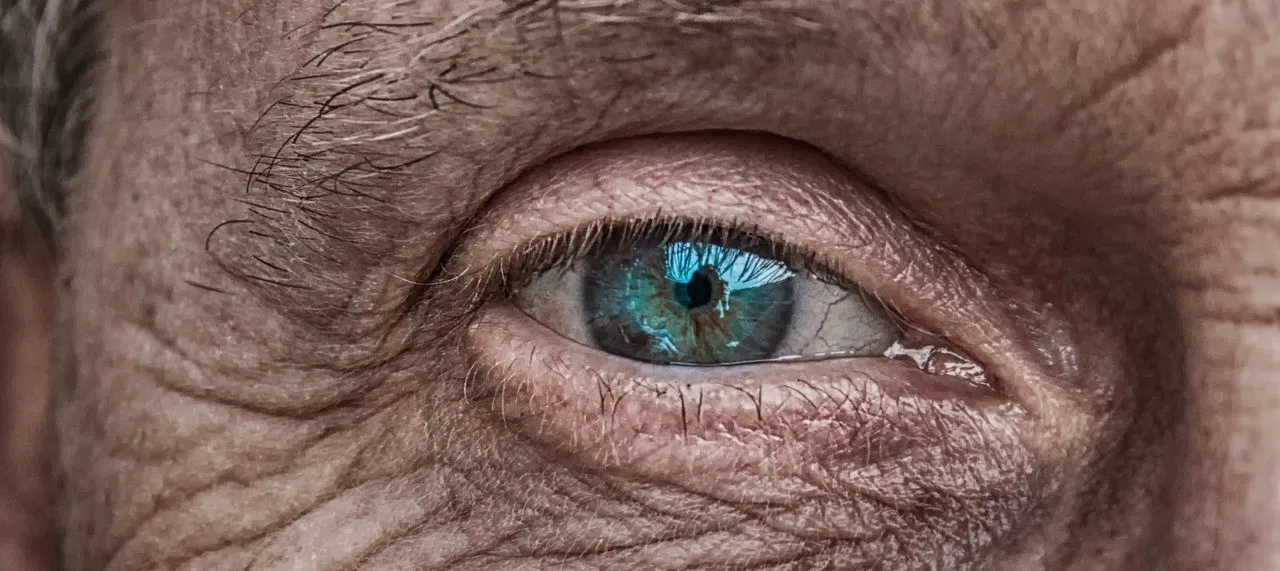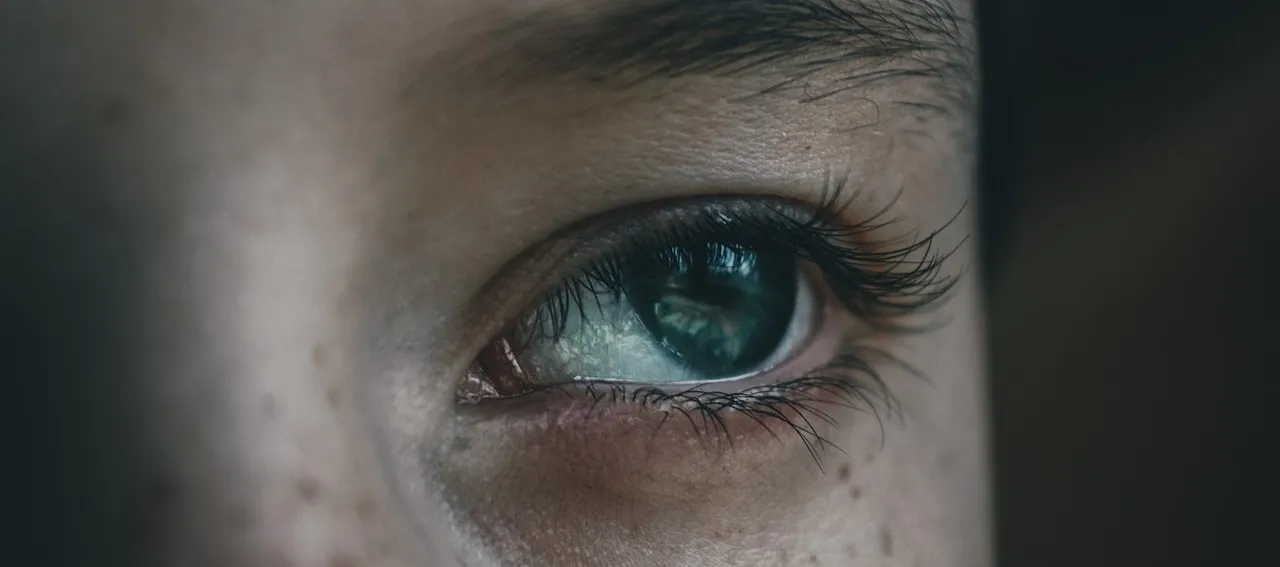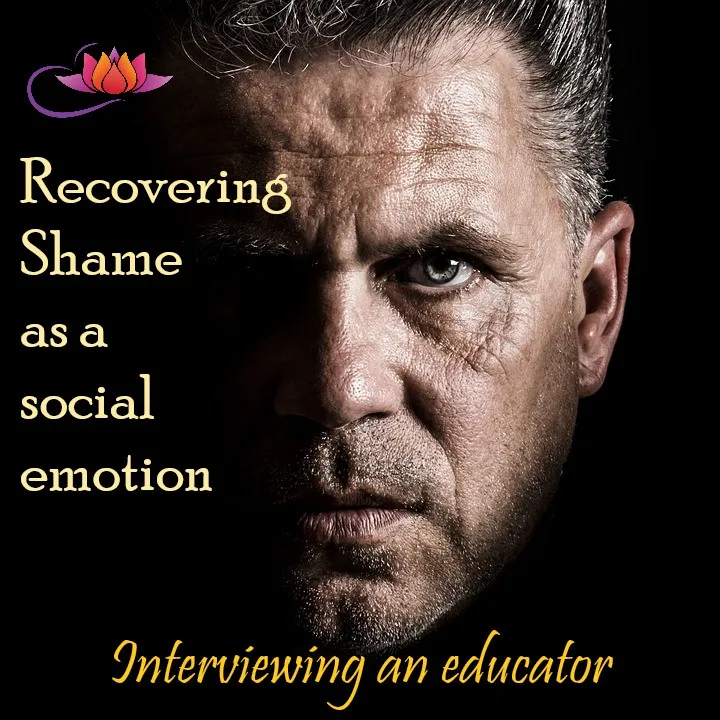
Pixabay-Googles; editada en Paint

Mi publicación sobre la crítica constructiva y destructiva dio paso a una reflexión importante acerca de lo que es la libertad de expresión; pero:
¿En qué momento corregimos o destruimos sin saberlo?
La crítica es una opinión y se vuelve destructiva o constructiva dependiendo del que la toma o de quién la recibe y de cómo la recibe; lo que lleva a preguntarse:
¿Qué otros puntos deben tratarse cuando hablamos de la crítica terrible y feroz que vemos en las redes sociales?
Decidí preguntarle a un educador a quien respeto; profesor universitario en el área de sociales y economía, sobre esta situación; y caímos en un tema del cual poca gente habla: De la vergüenza; y pensamos que hay que rescatarla.
Basta con colocar la palabra en el buscador para leer sus ventajas, porque una persona que la siente y la toma en cuenta, tiene mayor capacidad de escuchar, de reflexión, amabilidad, lealtad, sensibilidad y humildad; lo cual lleva hasta la empatía.


Pixabay-Analogicus
Conversaciones con un profesor universitario
El profesor Germán González es un lector incansable y un pensador innato; lo respeto muchísimo en sus análisis, porque entiendo que tiene la capacidad de desglosar cualquier situación en forma muy completa y ética.
Le pedí que leyera mi artículo en @holos-lotus: ¡Crítica abundante! ¿Construcción o destrucción? -Reflexiones en 7mo. Día-; para que me diera sus apreciaciones:
¿Qué le ha parecido el artículo sobre la crítica destructiva, básicamente?
Se manejan buenos conceptos desde el punto de vista terapéutico; pero el problema es que no podemos sentir al otro; nunca vamos a poder estar dentro de un ser humano y saber qué siente ante una crítica; y cada opinión encierra la valoración de quien la emite, no de otro.
Además, está el otro asunto, que es que, la Real Academia Española dice que es cuestión de analizar, pero, ¿qué significa analizar realmente?
Analizar implica ver el todo, desglosar sus partes e integrarlas de nuevo para ver el comportamiento de cada una de esas partes en el todo.
Y el problema es que, con las redes sociales, “todo el mundo” entre comillas, tiene el derecho y, con doble comillas, “la libertad”, de analizar y expresar sus opiniones.
Así, la gente dice sus verdades, vestidos, desnudos, desde la calle, desde su casa; pero eso no significa que estén diciendo y expresándose en la forma correcta; y ese es el problema: ¿Qué es lo correcto en la convivencia humana?
¿Qué se analizaría en esta situación planteada sobre las críticas?
Se debería analizar la argumentación.
Yo puedo atacar ferozmente tus argumentaciones, no tu vida privada, no tu manera de ser; solo tus argumentaciones.
Eso sería medir los argumentos; y las verdades que se van a exponer van a llegar hasta donde nuestros argumentos lleguen; porque la verdad se transforma en infinita en cuanto al conocimiento del hombre; siempre está en constante cambio.
Pero, cuando yo lanzo un golpe, permito que los demás me vean; es decir, cuando yo golpeo dejo al descubierto todos mis flancos débiles.
Así que, en esto de analizar las críticas habría que cambiar la perspectiva.
Porque una crítica me afecta si yo lo permito; pero es cierto que hay mucha gente con debilidades a los cuales les afecta mucho las críticas; pero las críticas son para observar a aquel que las emite.
Cambiamos entonces la manera de ver las cosas ¿Cómo queda el malestar del receptor de la crítica?
Nadie está obligado a aceptar ninguna crítica por las redes sociales, ni a tomarlas en cuenta, ni a reaccionar de alguna manera ante ellas; porque, generalmente los argumentos con los que la gente critica para destruir, nunca son válidos.
Pueden parecerse a ciertas verdades, que es allí donde las personas se enganchan; pero la argumentación nunca es válida, porque cuando es válida, la persona no se siente atacada si no guiada y tiende a la reflexión.

Pixabay-Helmut_Strasil
¿Qué hacer entonces?
Hay que decir cuando un argumento no tiene ni pies ni cabeza o, simplemente, que está errado, según lo planteado.
Hay que decirlo, porque las críticas se toman de quién provienen; más esto, amerita de madurez emocional.
Es más, todo argumento tiene debilidades, porque la verdad está en construcción constantemente, y siempre que se critica, se opina, se grita o se argumenta; dejamos ver nuestras debilidades o hasta dónde tenemos conocimiento sobre algo.
Habría que buscar la transformación política como fin, que ese es el papel del ser humano; porque terminamos emitiendo opiniones socialmente vergonzosas.
De allí que hay que rescatar la vergüenza en el ser humano.
La vergüenza humana como instrumento de medida o de contención…
Se ha perdido el sentido de la vergüenza; muchos de los que leemos o publicamos algo en las redes sociales, no comentamos o no respondemos porque, al conocer la calidad de nuestros argumentos, nos daría vergüenza hacer una crítica.
Pero muchos no somos conscientes de lo que sabemos y de hasta dónde podemos argumentar, y hay gente que opina como si sus argumentos llegaran hasta el nivel de conocimiento del que expone, y eso es vergonzoso.
Para poder argumentar opiniones, o bien, se aclara el déficit o desconocimiento que se tiene sobre un tema, o se pregunta desde su desconocer; pero hace falta consciencia.
¿Eso quiere decir que todos podemos intervenir, que todos podemos opinar ante cualquier tópico?
Cualquier persona puede intervenir, porque la idea es que la interacción humana sea enriquecedora; así, yo puedo participar en una discusión o en una propuesta desde mis incapacidades, con respeto y con ansias de saber y de conocer más, pidiendo información.

Pixabay-Vika_Glitter
La forma está en cómo se plantean las cosas o cómo se critica…
Lanzar opiniones con pretensión de verdad absoluta es muy frecuente; damos pena ajena.
Hay que tener una actitud política, transformadora de la realidad hacia el bienestar social; y hoy en día, esto se pierde por defender una libertad de expresión que no es, sino, libertinaje.
El ser humano es político, transformador; por lo tanto, analiza las cosas en forma crítica, con cierto nivel de justicia, en la búsqueda de la transformación de la realidad hacia el bienestar o la mejora social.
Eso es convertirse en un ser empático; está más cerca del concepto de empatía, que el que reza, que sientas lo que el otro siente.
Sí, evidentemente, necesitamos freno…
Estos temas hay que discutirlos, porque deben ser puntos de reflexión para que la gente opine desde sus experiencias, argumentando con consciencia de lo que se dice.
Esto permite hacerle frente, con vergüenza, a una realidad; que es que la gente está manejando las redes sociales con libertinaje e irrespeto.
No construye, ni transforma políticamente nada, enarbolando la supuesta bandera de la libertad de expresión.

Nota:
Este artículo ha dado paso a la búsqueda de lo relacionado con la vergüenza; sus definiciones y sus consecuencias; por lo cual será un tema que pronto exploraré por esta comunidad.
Debido a que mis publicaciones, es decir, los temas expuestos, no caducan, informo que aún podemos realizar publicaciones basadas en el tema de la opinión o crítica, constructiva y destructiva; sobre todo en redes sociales.
Y muchas gracias por sus grandiosas participaciones hasta ahora.


Shame as a containment of criticism -An interview with a university educator on the subject-

Pixabay-Googles; editada en Paint

My post about constructive and destructive criticism gave way to an important reflection about what freedom of expression is; but:
At what point do we unknowingly correct or destroy?
Criticism is an opinion and it becomes destructive or constructive depending on who takes it or who receives it and how they receive it; which begs the question:
What other points should be addressed when we talk about the terrible and fierce criticism we see on social media?
I decided to ask an educator whom I respect; a university professor in the area of social and economics, about this situation; and we landed on a topic that few people talk about: Of shame; and we think it needs to be rescued.
It is enough to place the word in the search engine to read its advantages, because a person who feels it and takes it into account, has a greater capacity to listen, reflection, kindness, loyalty, sensitivity and humility; which leads to empathy.


Pixabay-Analogicus
Conversations with a university professor
Professor Germán González is a tireless reader and an innate thinker; I respect him very much in his analyses, because I understand that he has the ability to break down any situation in a very complete and ethical way.
I asked him to read my article in @holos-lotus: Abundant Criticism: Construction or Destruction? -Reflections on 7th Day-; to give me your appreciations:
What did you think of the article on destructive criticism, basically?
They handle good concepts from the therapeutic point of view; but the problem is that we cannot feel the other person; we will never be able to be inside a human being and know what he feels when faced with criticism; and each opinion contains the assessment of the person who issues it, not of another.
Besides, there is the other issue, which is that the Royal Spanish Academy says that it is a matter of analyzing, but what does it really mean to analyze?
To analyze implies seeing the whole, breaking down its parts and integrating them again to see the behavior of each of those parts in the whole.
And the problem is that, with social networks, "everyone" in quotation marks, has the right and, with double quotation marks, "the freedom", to analyze and express their opinions.
So, people say their truths, dressed, naked, from the street, from their homes; but that does not mean that they are saying and expressing themselves in the right way; and that is the problem: What is the right thing to do in human coexistence?
What would be analyzed in this situation raised about the criticisms?
The argumentation should be analyzed.
I can fiercely attack your arguments, not your private life, not your way of being; only your arguments.
That would be measuring the arguments; and the truths that are going to be exposed will go as far as our arguments go; because truth becomes infinite as far as man's knowledge is concerned; it is always in constant change.
But, when I strike a blow, I allow others to see me; that is to say, when I strike I expose all my weak flanks.
So, when it comes to analyzing criticism, we should change our perspective.
Because a criticism affects me if I allow it; but it is true that there are many people with weaknesses who are very affected by criticism; but criticism is to observe the one who emits it.
We then change the way of seeing things. How is the discomfort of the receiver of the criticism?
No one is obliged to accept any criticism through social networks, nor to take them into account, nor to react in any way to them; because, generally the arguments with which people criticize to destroy, are never valid.
They may resemble certain truths, which is where people get hooked; but the argumentation is never valid, because when it is valid, the person does not feel attacked but guided and tends to reflect.

Pixabay-Helmut_Strasil
What to do then?
It is necessary to say when an argument has neither feet nor head or, simply, that it is wrong, according to what is stated.
It must be said, because criticisms are taken from whom they come from; moreover, this requires emotional maturity.
Moreover, every argument has weaknesses, because truth is constantly under construction, and whenever we criticize, give our opinion, shout or argue, we show our weaknesses or the extent of our knowledge about something.
We should seek political transformation as an end, which is the role of the human being, because we end up issuing socially shameful opinions.
Hence, we must rescue the shame in the human being.
Human shame as an instrument of measurement or contention...
The sense of shame has been lost; many of us who read or post something on social networks do not comment or do not respond because, knowing the quality of our arguments, we would be ashamed to criticize.
But many of us are not aware of what we know and how far we can argue, and there are people who give opinions as if their arguments reach the level of knowledge of the person making the argument, and that is shameful.
In order to argue opinions, either the deficit or lack of knowledge on a subject is clarified, or the lack of knowledge is questioned; but awareness is needed.
Does this mean that we can all intervene, that we can all give our opinion on any topic?
Any person can intervene, because the idea is that human interaction is enriching; thus, I can participate in a discussion or in a proposal from my incapacities, with respect and with the desire to know and to know more, asking for information.

Pixabay-Vika_Glitter
The form is in how things are presented or how they are criticized...
Launching opinions with pretensions of absolute truth is very frequent; we are embarrassing.
It is necessary to have a political attitude, transforming reality towards social welfare; and today, this is lost by defending a freedom of expression that is not, but libertarianism.
The human being is political, transformer; therefore, he analyzes things in a critical way, with a certain level of justice, in the search for the transformation of reality towards social welfare or improvement.
That is to become an empathic being; it is closer to the concept of empathy, that the one who prays, that you feel what the other feels.
Yes, evidently, we need a brake....
These issues need to be discussed, because they should be points of reflection for people to give their opinion from their experiences, arguing with awareness of what is said.
This allows us to face, with shame, a reality; which is that people are managing social networks with debauchery and disrespect.
It does not build or politically transform anything, raising the supposed flag of freedom of expression.

Note:
This article has given way to the search for what is related to shame; its definitions and its consequences; so it will be a topic that I will soon explore by this community.
Because my publications, that is, the topics exposed, do not expire, I inform that we can still make publications based on the topic of opinion or criticism, constructive and destructive; especially in social networks.
And thank you very much for your great participations so far.

Emilio Ríos – Venezuela
@emiliorios


- Barras separadoras y logo de English, editadas en Paint, de:
Separator bars and English logo edited in Paint, from:
Pixabay-RitaE
Cintillo personalizado de @emiliorios con el logo de #Hive, realizado por la excelente creadora @mosa71
Custom @emiliorios headband with the #Hive logo, made by the excellent creator @mosa71Nuevo logo de Twitter tomado de la plataforma de la red social.
New Twitter logo taken from the social network platform.Imagen de agradecimiento, tomando el logo de nuestra comunidad y editado en Paint, de:
Thank you image, taking our community logo and edited in Paint, by:
Pixabay-Jplenio
- Logo de la comunidad utilizado en las imágenes, de:
Community logo used in the images, from:
Pixabay-2405360
- Si lo deseas, puedes seguirnos en:
If you wish, you can follow us at:




